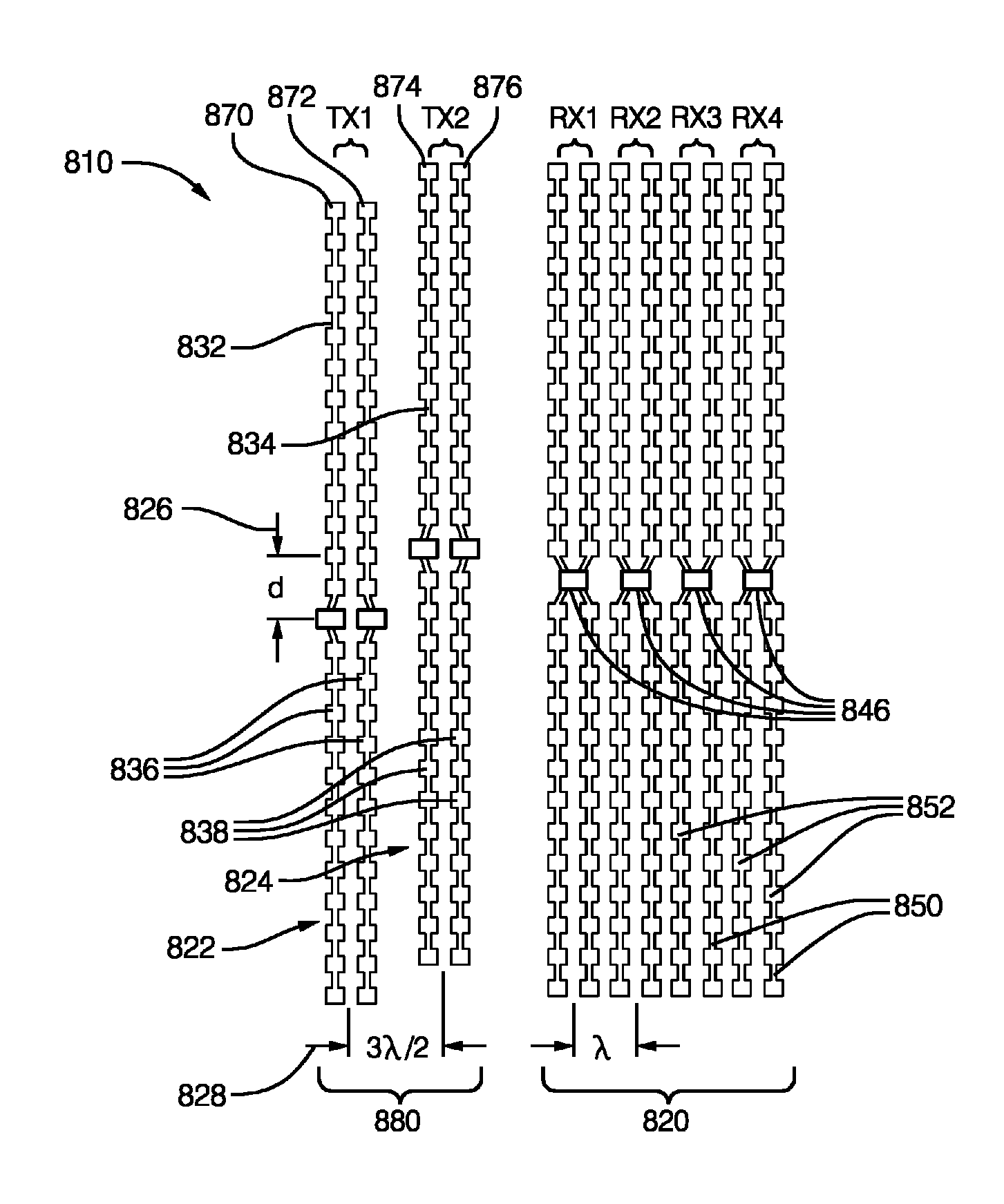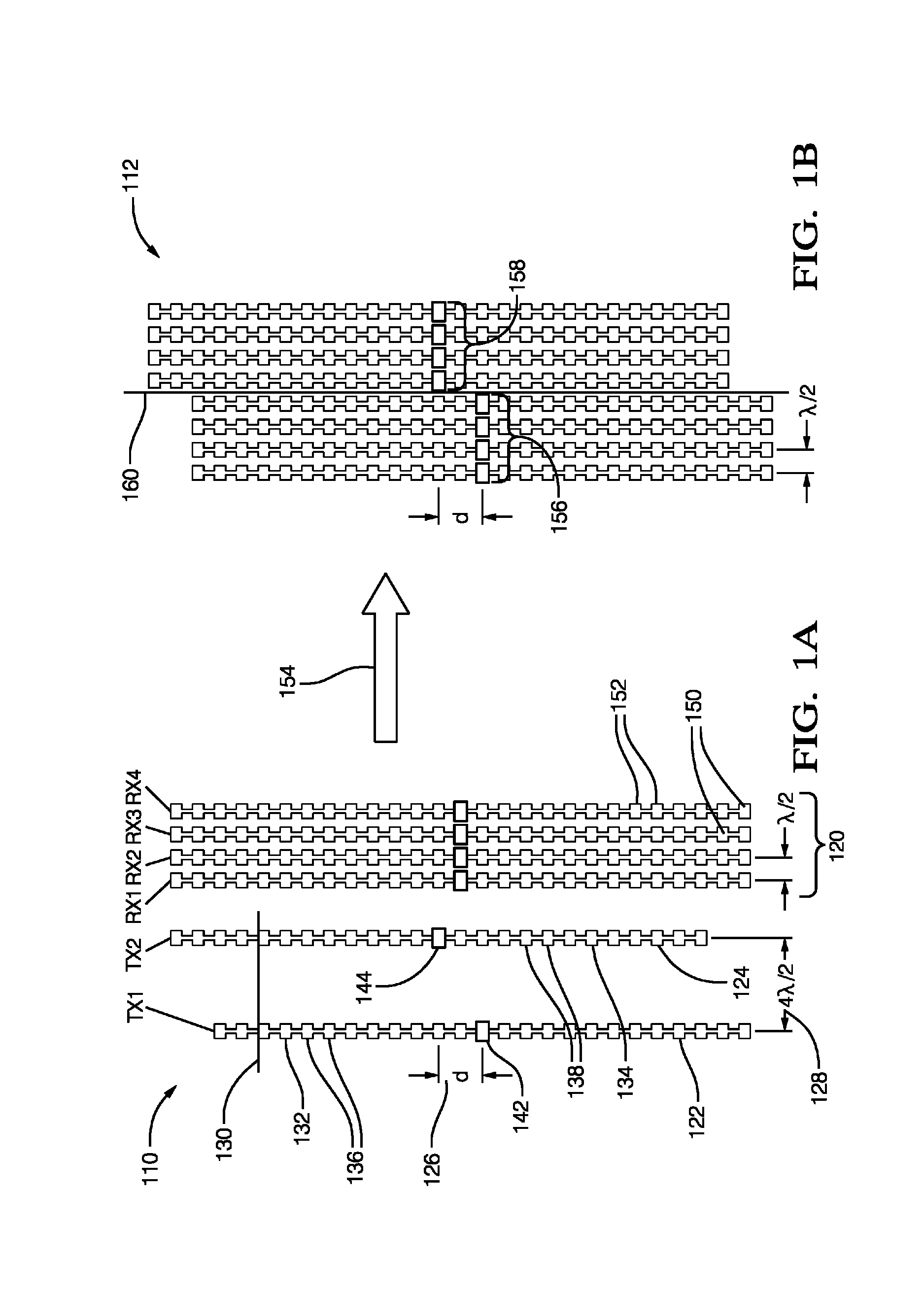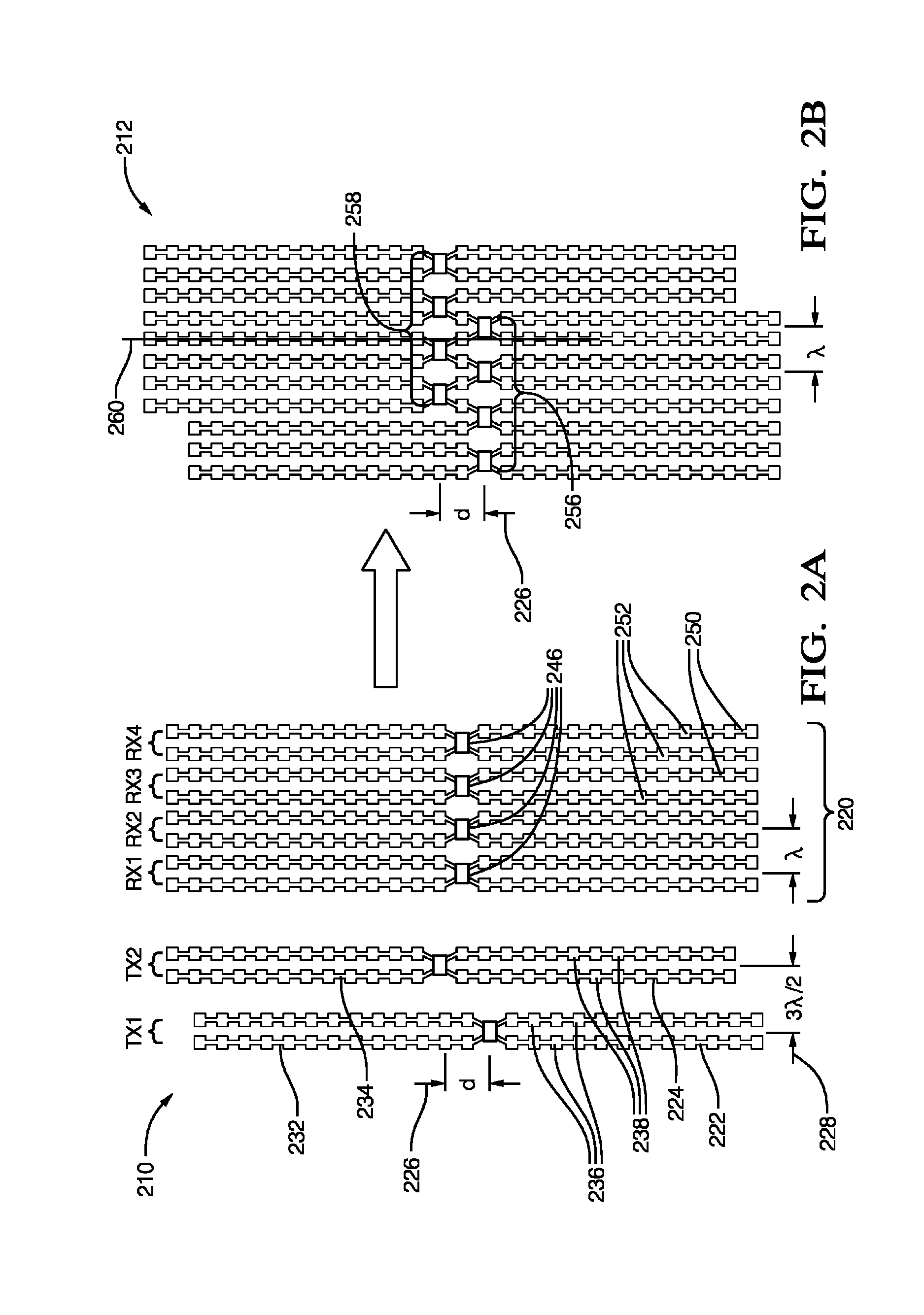MIMO antenna with elevation detection
a technology of elevation detection and input multiple output, which is applied in the direction of individually energised antenna arrays, instruments, and reradiation, etc., can solve the problems of increasing the number of transmitting and/or receiving antennas, increasing system costs, and more antennas providing better capability at the expense of increased cos
- Summary
- Abstract
- Description
- Claims
- Application Information
AI Technical Summary
Benefits of technology
Problems solved by technology
Method used
Image
Examples
Embodiment Construction
[0027]In general, multiple input, multiple output (MIMO) antenna architectures provide for electronic scanning with improved spatial coverage and resolution. MIMO operation typically requires multiple transmit and multiple receive antennas along with multiple transmitters and receivers. However, the teachings presented herein may also be applicable to a simpler receive antenna configuration, for example, a single receive antenna consisting of a single element. Described herein are various configurations of MIMO antennas where the number of transmit and receive antennas depends on the spatial coverage and resolution required in both the azimuth (horizontal) and elevation (vertical) dimensions. The number of transmitters and receivers can equal the number of transmit and receive antennas, or a fewer number can be timeshared between the respective transmit and / or receiver antennas. However, for best performance, parallel transmit and receive channels are used, one channel per antenna, ...
PUM
 Login to View More
Login to View More Abstract
Description
Claims
Application Information
 Login to View More
Login to View More - R&D
- Intellectual Property
- Life Sciences
- Materials
- Tech Scout
- Unparalleled Data Quality
- Higher Quality Content
- 60% Fewer Hallucinations
Browse by: Latest US Patents, China's latest patents, Technical Efficacy Thesaurus, Application Domain, Technology Topic, Popular Technical Reports.
© 2025 PatSnap. All rights reserved.Legal|Privacy policy|Modern Slavery Act Transparency Statement|Sitemap|About US| Contact US: help@patsnap.com



